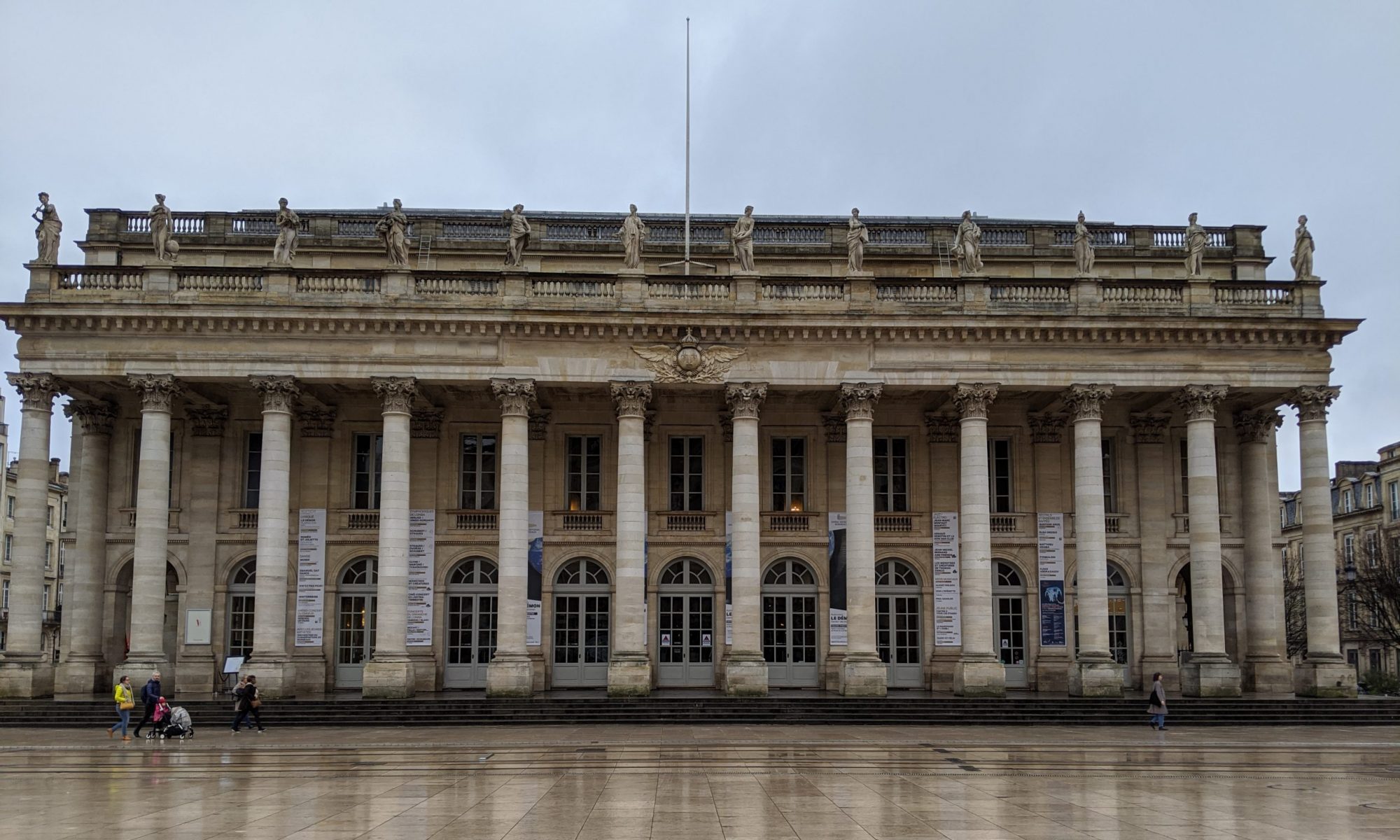
My second week of online vacation lessons chez moi has come to an unexpectedly early end. I met with my teacher Dominique, furnished by the Institut Linguistique d’Adanet of Montpellier, France, on Monday, Tuesday, and Wednesday of this week. Thursday was a scheduled day off, but early this morning I learned that Dominique had to cancel our Friday session for unnamed reasons. I’m hoping to do one more week of classes with ILA and a different teacher, but we’ll see if that materializes – Covid is once again disrupting all sorts of activities in France.
Dominique is a devotee of French film and was the source of the recommendations for Molière and Le Prénom which I wrote about earlier. He suggested a few others (Cuisine et dépendence, Les Choristes, Knock) that I plan to watch in the coming weeks. Our classes were a familiar mix of reading short texts or listening to short audio, and then discussing them. There was a smaller amount of written production, and the grammar work was limited to one set of exercises on prepositions.
Here are some of the item we’ve looked at together.
- Les toilettes les plus insolites!, a video report of four oddball bathrooms to be found in various Belgian restaurants:
- Copier Cloner, a short animation about the folly of modern techniques for raising beef cattle:
- Le théâtre à nu, a recent newspaper column reviewing three books about French theater (got that?): Sauver le moment , a memoir by actor Nicolas Bouchaud; Patrice Chéreau l’intranquille, a biography and analysis of this important director; and S’adresser à tous, a challenging critique of the historical breadth of French theater and its recent cooptation by the forces of capitalism or neoliberalism.
- Vacances pour tous, une utopie qui s’éloigne, a recent newspaper column about the evolution of the French notion of vacation as an institution in and of itself, starting with the emergence from World War II, and detailing the involvement of workers committees, dedicated paycheck deductions, and the construction of government subsidized vacation housing. From the early 80’s or so it’s been downhill in the eyes of this columnist, as first independent mutual tourism societies and then for-profit businesses have moved into the industry, pushing out their more egalitarian predecessors and catering exclusively to the well-heeled. In the thick of the fourth wave of Covid in France, the author laments the possible death of French vacations for all.
My homework for Friday morning was to write a brief summary of this article, but as our course was cancelled I have only my original version, without corrections from a teacher. I guess that will have to suffice …
Version originale
«Les vacances», un pilier de la culture française, comprend plusieurs éléments qui évoluent ensemble depuis 75 ans: la puissance des travailleurs par rapport à leurs employeurs, les lois qui s’appliquent au travail, l’infrastructure de transport et d’hébergement abordable, et la tradition nationale de quitter la maison annuellement. À partir de 1945, la société française s’organisait pour fournir à tous des jours de congé payés et des opportunités subventionnées de passer ses loisirs à l’extérieur. Au début, c’était les comités d’entreprise et les syndicats qui s’en occupaient, puis les associations touristiques, et finalement les sociétés commerciales. Mais au cours de cette évolution, le rêve solidaire d’un bénéfice pour tous a été perdu. Ceux qui ont de l’argent peuvent profiter des vacances, mais le créneau moins riche risque d’être abandonné. Plus récemment, la crise du Covid-19 a empiré la dérive.
